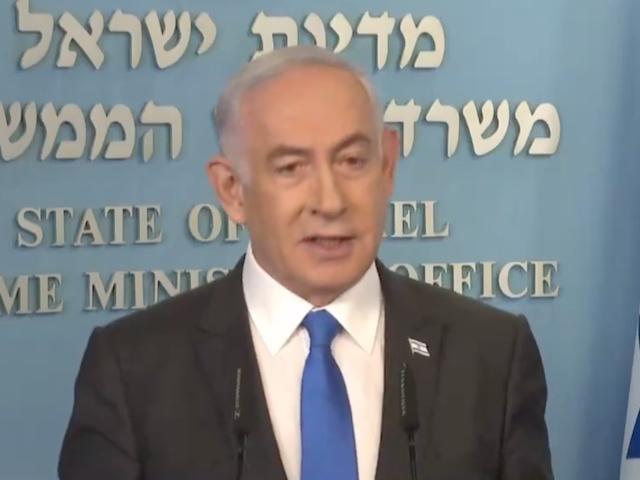Israeli Prime Minister Benjamin Netanyahu continues to stand firm against mounting international pressure regarding a potential ground operation in Rafah, an area where over half of the Gaza enclave's population, amounting to 1.4 million Palestinians, have sought refuge. Despite global calls for restraint and a push towards a two-state resolution to the enduring Israeli-Palestinian conflict, Netanyahu's administration maintains its course.
The stance of the Israeli government was crystallized in a recent declaration, unequivocally rejecting any international mandates for a permanent settlement with the Palestinians. This declaration came in the wake of an October 7th incident that escalated tensions and, according to Netanyahu, underscored the dangers of prematurely recognizing a Palestinian state—a move Israel views as a concession to terrorism.
Hamas is terrified, they expected they could mobilize the mob to prevent Israel from bringing the full strength of the IDF to fight them.
— Pepper Wingate (@PepperWingate) February 18, 2024
Oops!
Israel will fight in Rafah despite US pressure, says Netanyahu | World Israel News https://t.co/yviGewYmNE
The international community, notably France and Egypt, has voiced strong opposition to any Israeli offensive targeting Rafah, highlighting the potential for a significant humanitarian crisis and the risk of forced displacements constituting a breach of international humanitarian law. Such actions, they argue, would only exacerbate regional instability.
Efforts by the United States, Israel's principal ally, to mediate a ceasefire and secure a broader resolution to the conflict have been met with challenges. A proposed UN ceasefire resolution, initiated by Algeria, was promptly dismissed by the U.S., which argued that it would derail ongoing peace efforts. The resolution, which sought an immediate humanitarian ceasefire and condemned the forced displacement of Palestinian civilians, was seen as incompatible with the objectives pursued by Washington.
Dialogue between Israel and Hamas remains fraught with contention. Hamas's demands, including a complete Israeli withdrawal from Gaza and the release of numerous Palestinian prisoners, have been outright rejected by Netanyahu. The Israeli Prime Minister has been vocal about his refusal to allow Hamas the opportunity to restore its military and administrative capabilities.
🇮🇱NETANYAHU MAKES STATEMENT ON HAMAS DEAL AND RAFAH
— Mario Nawfal (@MarioNawfal) February 17, 2024
"Until this moment, the demands of Hamas are illusory. They mean one thing - defeat for Israel. Of course, we will not agree to them. When Hamas drops these demands - we will be able to move forward. Those who prevent us from… pic.twitter.com/ByW6sV6sHn
On the humanitarian front, the conflict has severely impacted medical facilities in Gaza. The WHO reported that Nasser Hospital, a critical healthcare institution in southern Gaza, has been rendered inoperative following Israeli military action. Despite efforts to deliver essential supplies and evaluate patient needs, access to the hospital has been restricted.
The arrest of over 100 individuals suspected of militancy by Israel, along with allegations of mistreatment, has further complicated the situation. The ongoing conflict has led to significant casualties, with Gaza's Health Ministry reporting thousands of deaths, predominantly among women and children, since the war's onset. The ministry's records do not differentiate between civilian and combatant fatalities.
"Those telling us not to enter Rafah are essentially saying ‘lose the war’" ~ PM Netanyahu
— Imtiaz Mahmood (@ImtiazMadmood) February 18, 2024
Israel's already won. But not finishing off Hamas means that'll just happen again in 3 to 7 years.
Hamas has lost almost 35% of its militants, and a quarter to a third of its tunnels have…
As the situation unfolds, the international community continues to seek pathways to peace, emphasizing the urgency of a ceasefire, unhindered humanitarian support, and a lasting resolution to the Israeli-Palestinian conflict. The resilience of both parties to the conflict, however, suggests a challenging road ahead in achieving these objectives.


